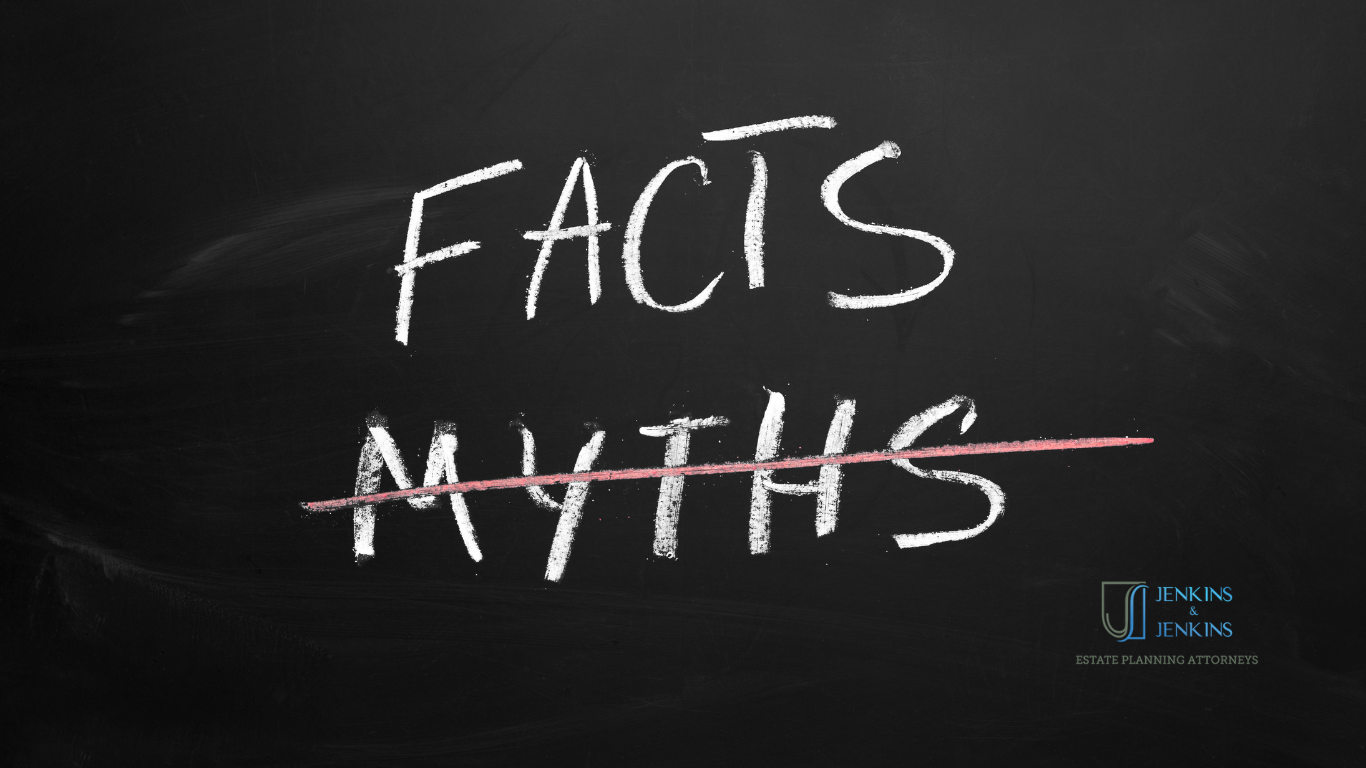Estate planning isn’t just for the wealthy or elderly—it’s something everyone should consider. But despite its importance, many people still hold onto misconceptions that can lead to confusion or inaction. If you’ve ever thought, “I’m too young to need a will,” or “My spouse will automatically inherit everything,” you’re not alone. These are just a few of the common estate planning myths we encounter daily.
In this post, we’ll address some of the most frequent myths about estate planning and set the record straight, so you can make informed decisions for your future.
Myth 1: “I’m Too Young to Need Estate Planning.”
Busted: No one is too young to start planning for the future. While it’s true that most people think of estate planning as something for older adults, the reality is that life can change unexpectedly at any age. Accidents, health issues, or other unforeseen circumstances can happen when you least expect them.
Creating an estate plan at any age ensures that your wishes are honored if something happens to you. Key documents, like a Power of Attorney (for financial and healthcare decisions) and a Living Will, can provide critical protection if you become incapacitated. Planning early can also give you the peace of mind that your loved ones will be taken care of according to your wishes, regardless of when or how tragedy strikes.
Myth 2: “I Don’t Have Enough Assets to Warrant Estate Planning.”
Busted: Estate planning isn’t just for the rich. Regardless of your asset level, it’s about making sure your wishes are followed and your loved ones are protected. In fact, even people with modest estates can benefit from having a clear plan in place.
Consider the following:
- Guardianship for children: If you have young children, a will is essential to designate who will care for them if something happens to you.
- Health and financial decisions: Powers of attorney and healthcare directives ensure that someone you trust can manage your affairs if you’re unable to.
- Avoiding probate: A well-thought-out plan can help you avoid the lengthy and costly probate process, regardless of how much wealth you have.
No matter how much you own, an estate plan is about protecting what matters most and making things easier for your loved ones during a difficult time.
Myth 3: “My Spouse Will Automatically Inherit Everything.”
Busted: While it may seem logical that your spouse would automatically inherit everything, this isn’t always the case. Whether or not your spouse inherits your assets depends on a variety of factors, such as the way your property is titled and whether you have a will or trust in place.
For example:
- Jointly owned property: If you own property jointly with your spouse, it may pass to them automatically, depending on how it’s titled.
- Beneficiary designations: Assets like retirement accounts or life insurance policies pass directly to the named beneficiary, not necessarily to your spouse. And if there is no beneficiary designation in place, it becomes part of your estate which often must be sent through Probate to claim.
- State law: Depending on the state you live in, if you die without a will, the state’s laws of intestacy will determine how your assets are distributed, and your spouse may not automatically receive everything (especially so in the case of Separate Property).
It’s essential to have an estate plan that explicitly states how your assets should be distributed and that clearly names your spouse as a beneficiary where appropriate. Getting this done right can avoid the surviving spouse being required to do a spousal property petition or general probate should something happen to you.
Myth 4: “I Don’t Need to Worry About Estate Planning If I Have a Will.”
Busted: While having a will is a great first step, it’s just one piece of the puzzle. A comprehensive estate plan goes beyond simply naming beneficiaries and distributing assets. Other critical documents, like trusts, Powers of Attorney, and healthcare directives, are often just as important, if not more so, depending on your situation.
For example, a Living Trust allows your assets to pass outside of probate, which can save time, money, and reduce the public exposure of your affairs. Meanwhile, a Healthcare Power of Attorney ensures that someone you trust can make medical decisions on your behalf if you’re unable to do so.
Relying solely on a will can leave important aspects of your estate unprotected, especially when it comes to incapacity planning and ensuring your family avoids probate court.
Myth 5: “Once I Create My Estate Plan, I Don’t Need to Update It.”
Busted: Life is constantly changing, and so are your needs. That’s why it’s essential to review and update your estate plan regularly, particularly after major life events. For example:
- Marriage or divorce: You may need to update beneficiaries, guardianship designations, and financial arrangements.
- The birth of children or grandchildren: These milestones should prompt a review of your will, trust, and other documents to include your new family members.
- Changes in assets or financial circumstances: A significant increase or decrease in wealth may require adjustments to your estate plan, particularly if you need to minimize tax liabilities, update your trust, or make sure your trust is properly funded.
- Relocation: Moving to a new state can affect your estate plan, as different states have different laws regarding estate planning, probate, and tax implications.
Regular updates ensure that your estate plan continues to reflect your wishes and adapts to your evolving life.
Myth 6: “Estate Planning Is Too Expensive and Complicated.”
Busted: While it’s true that estate planning can seem overwhelming, it doesn’t have to be. Many people put off planning because they assume it will be a long and costly process, but the reality is that having a well-structured estate plan can save you money in the long run—especially if it helps avoid probate or costly legal battles.
At Jenkins & Jenkins, we pride ourselves on creating customized, simple, and cost-effective estate plans that suit your needs. Whether it’s drafting a will, setting up a trust, or reviewing your current plan, we guide you through every step and ensure that you understand the process without unnecessary complexity.
Why It’s Time to Act Now
Estate planning is about more than just distributing your wealth—it’s about ensuring that your wishes are honored, your loved ones are taken care of, and your family avoids unnecessary complications in the future. By addressing common myths and busting misconceptions, we hope to help you take the next step in securing your future.
At Jenkins & Jenkins, we are here to help you navigate the estate planning process with clarity and confidence. Don’t wait for the myths to hold you back—contact us today to schedule a consultation and start planning for your future, no matter your age or asset level.






